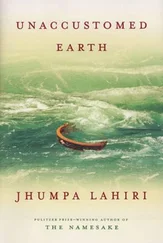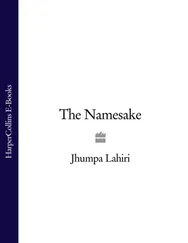A week after arriving, the Saturday after that unforgettable Saturday night, I open my diary to describe our misadventures. That Saturday, I do something strange, unexpected. I write my diary in Italian. I do it almost automatically, spontaneously. I do it because when I take the pen in my hand, I no longer hear English in my brain. During this period when everything confuses me, everything unsettles me, I change the language I write in. I begin to relate, in the most exacting way, everything that is testing me.
I write in a terrible, embarrassing Italian, full of mistakes. Without correcting, without a dictionary, by instinct alone. I grope my way, like a child, like a semiliterate. I am ashamed of writing like this. I don’t understand this mysterious impulse, which emerges out of nowhere. I can’t stop.
It’s as if I were writing with my left hand, my weak hand, the one I’m not supposed to write with. It seems a transgression, a rebellion, an act of stupidity. 
During the first months in Rome, my clandestine Italian diary is the only thing that consoles me, that gives me stability. Often, awake and restless in the middle of the night, I go to the desk to compose some paragraphs in Italian. It’s an absolutely secret project. No one suspects, no one knows.
I don’t recognize the person who is writing in this diary, in this new, approximate language. But I know that it’s the most genuine, most vulnerable part of me.
Before I moved to Rome I seldom wrote in Italian. I tried to compose some letters to an Italian friend of mine who lives in Madrid, some emails to my teacher. They were like formal, artificial exercises. The voice didn’t seem to be mine. In America it wasn’t. 
In Rome, however, writing in Italian is the only way to feel myself present here — maybe to have a connection, especially as a writer, with Italy. The new diary, although imperfect, although riddled with mistakes, mirrors my disorientation clearly. It reflects a radical transition, a state of complete bewilderment.
In the months before coming to Italy, I was looking for another direction for my writing. I wanted a new approach. I didn’t know that the language I had studied slowly for many years in America would, finally, give me the direction.
I use up one notebook, I start another. A second metaphor comes to mind: it’s as if, poorly equipped, I were climbing a mountain. It’s a sort of literary act of survival. I don’t have many words to express myself — rather, the opposite. I’m aware of a state of deprivation. And yet, at the same time, I feel free, light. I rediscover the reason that I write, the joy as well as the need. I find again the pleasure I’ve felt since I was a child: putting words in a notebook that no one will read. 
In Italian I write without style, in a primitive way. I’m always uncertain. My sole intention, along with a blind but sincere faith, is to be understood, and to understand myself.

The diary provides me with the discipline, the habit of writing in Italian. But writing only a diary is the equivalent of shutting myself in the house, talking to myself. What I express there remains a private, interior narration. At a certain point, in spite of the risk, I want to go out.
I start with very short pieces, usually no more than a handwritten page. I try to focus on something specific: a person, a moment, a place. I do what I ask my students to do when I teach creative writing. I explain to them that such fragments are the first steps to take before constructing a story. I think that a writer should observe the real world before imagining a nonexistent one.
My short Italian pieces are mere trifles. And yet I work hard to try to perfect them. I give the first piece to my new Italian teacher in Rome. When he gives it back to me, I’m mortified. I see only mistakes, only problems. I see a catastrophe. Almost every sentence has to be changed. I correct the first version in red pen. At the end of the lesson the page contains as much red ink as black. 
I’ve never tried to do anything this demanding as a writer. I find that my project is so arduous that it seems sadistic. I have to start again from the beginning, as if I had never written anything in my life. But, to be precise, I am not at the starting point: rather, I’m in another dimension, where I have no references, no armor. Where I’ve never felt so stupid.
Even though I now speak the language fairly well, the spoken language doesn’t help me. A conversation involves a sort of collaboration and, often, an act of forgiveness. When I speak I can make mistakes, but I’m somehow able to make myself understood. On the page I am alone. The spoken language is a kind of antechamber with respect to the written, which has a stricter, more elusive logic.
In spite of the humiliation I continue. For the next lesson, I prepare something different. Because buried under all the mistakes, all the rough spots, is something precious. A new voice, crude but alive, to improve, to elaborate. 
One day I find myself in a library where I never feel very comfortable, and where I usually can’t work well. There, at an anonymous desk, an entire story in Italian comes into my mind. It comes in a flash. I hear the sentences in my brain. I don’t know where they originate, I don’t know how I’m able to hear them. I write rapidly in the notebook; I’m afraid it will all disappear before I can get it down. Everything unfolds calmly. I don’t use the dictionary. It takes me about two hours to write the first half of the story. The next day I return to the same library for another couple of hours, to finish it.
I am aware of a break, along with a birth. I’m stunned by it.
I’ve never written a story in this fashion. In English I can consider what I write, I can stop after every sentence to look for the right words, to reorder them, change my mind a thousand times. My knowledge of English is both an advantage and a hindrance. I rewrite everything like a lunatic until it satisfies me, while in Italian, like a soldier in the desert, I have to simply keep going. 
After finishing the story, I type it on the computer. For the first time I’m working on the screen in Italian. My fingers are tense. They don’t know how to move on the keyboard.
I know there will be many things to correct, to rewrite.
I know that my life as a writer will no longer be the same. 
The story is entitled “The Exchange.”
What is it about? The protagonist is a translator who is restless, and moves to an unspecified city in search of a change. She arrives by herself, with almost nothing, except a black sweater.
I don’t know how to read the story, I don’t know what to think about it. I don’t know if it works. I don’t have the critical skills to judge it. Although it came from me, it doesn’t seem completely mine. I’m sure of only one thing: I would never have written it in English. 
Читать дальше














